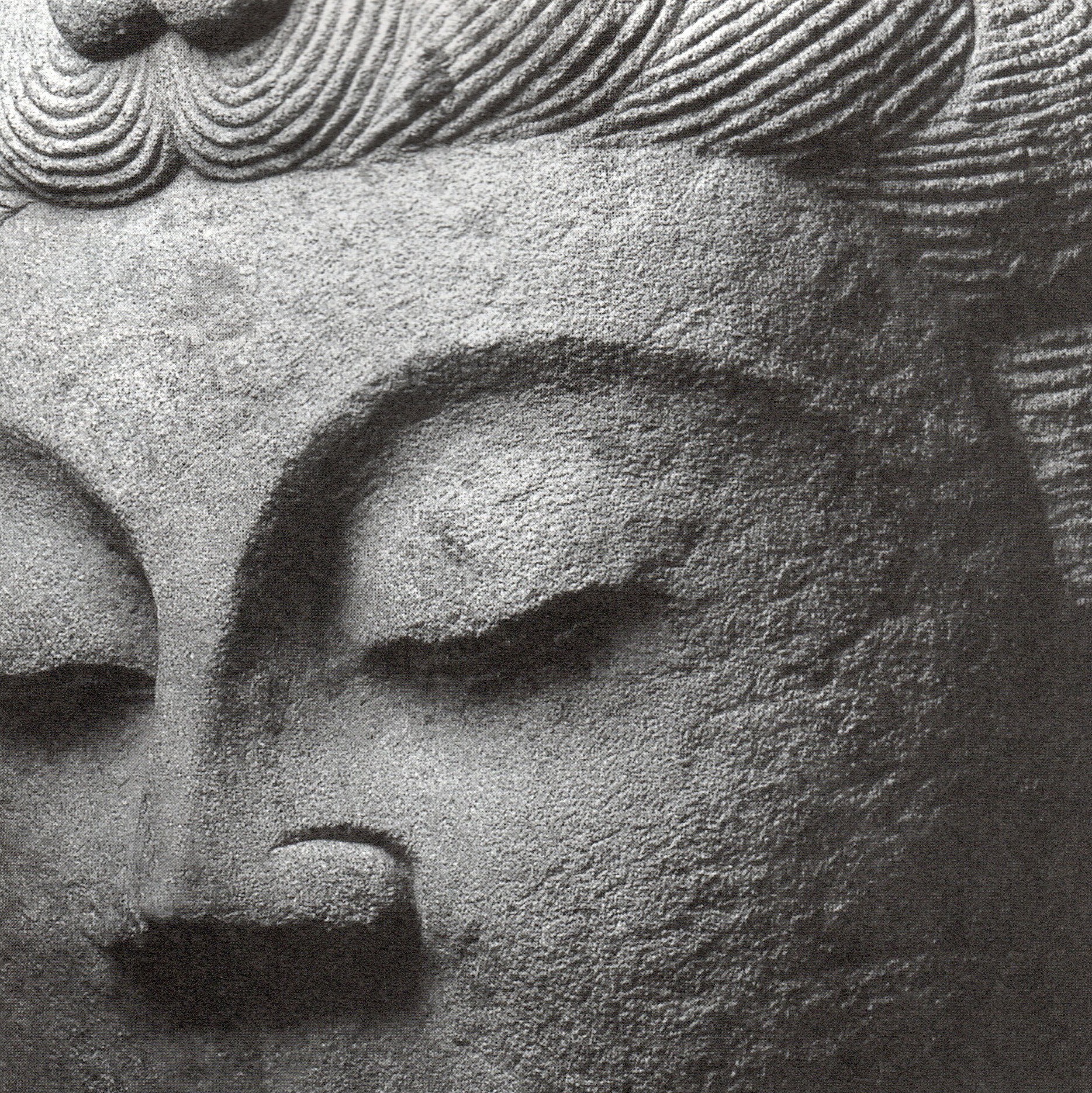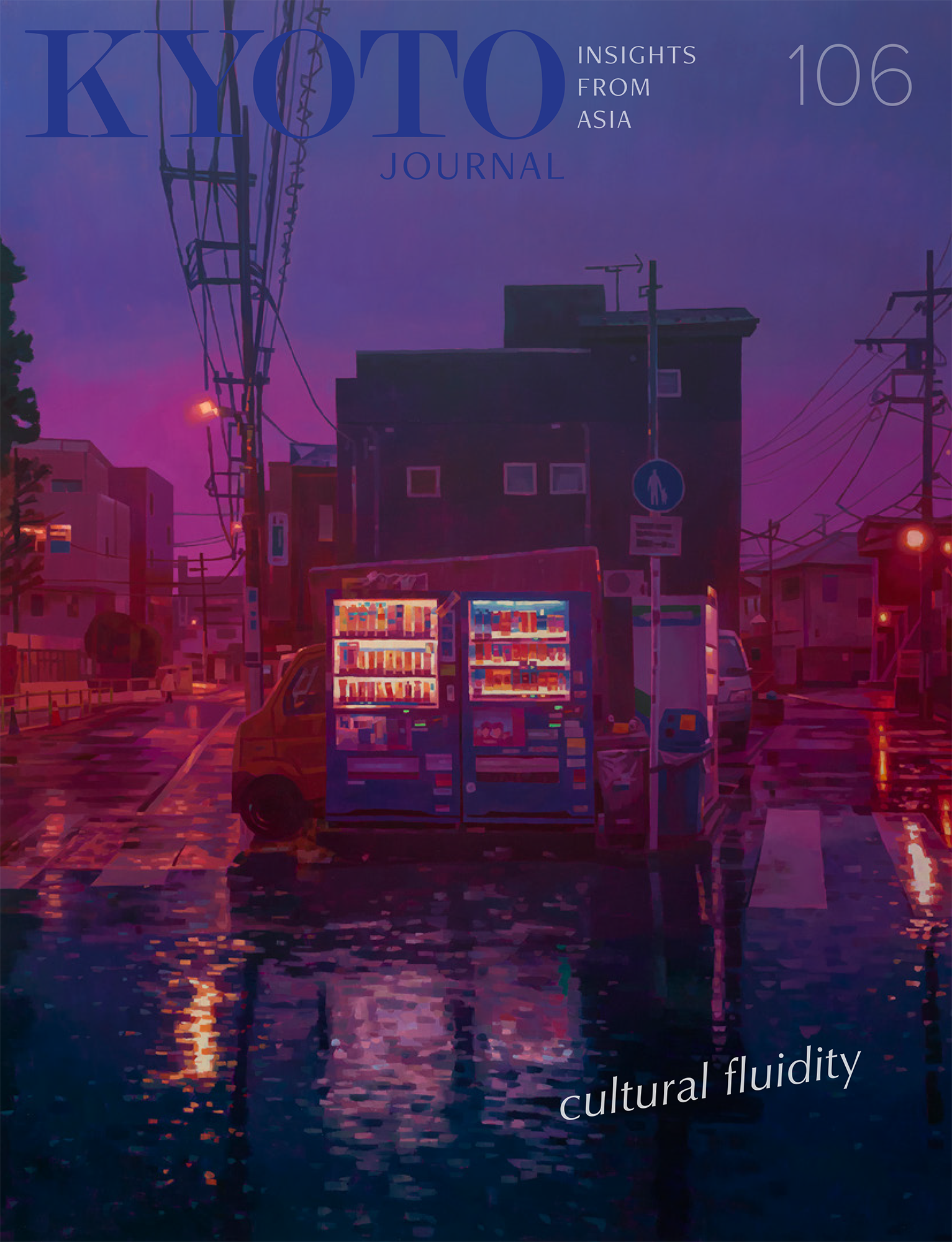Alex walked along what the driver had assured him was China Beach. It wasn’t. But he hadn’t bothered to contradict the man. Print the legend. What it was, was as close as he could bring himself to go. He could see the dark humps of the Marble Mountains out of the corner of his eye. He tore his eyes away. But he had a daughter to get back to, one he had abandoned to find her own story while he got on with his. He turned and faced the black silhouettes of Ngu Hanh Son, sighed and started to trudge towards them.
Earlier, when he’s driven through from the airport to Hoi An, he’d kept looking straight ahead when the taxi passed through this area, as if he’d be sucked into a whirlpool or turned to stone if he looked directly at the area around the Marble Mountains and the village nestled among them. He saw now it was thick with casuarina trees, their leaves bright green and fleshy, a richness of vegetation that he didn’t remember. He recalled sand flats all the way from the tarmac and perimeter to here, a bleak landscape dotted with the shanty shacks of refugees, the broken snake of the crater-pocked road, the helicopter base’s scabrous huddle of tin-roofed hootches, rows of canvas tents filling and deflating on the land, a huge beast; he lived in its guts; when he wasn’t flying, it absorbed him. He would stare at the not-so distant, broken black jag of the mountains on the horizon from the door of his hootch, from the tarmac when he worked on the helicopters, from his sand-bagged position when he was on perimeter guard; he would fly over them when he was on flight pay. They were a rampart behind which the real country huddled and seethed forbidden to the Marines because of its shrines and secret places. He had needed to go to them then, to find what they held, maybe some heart of himself that had not been shrunken and absorbed, digested. He was a sculptor, a carver, when he saw a beautiful piece of stone, he needed to go to it, open it, reveal its hidden shapes and faces. He’d been pulled to the mountain that day. The bear went into the mountain to see what he could see. But he hadn’t had the guts to go to it alone. He’d taken three others with him, left two, and brought back one for whom this place was the last vision seared on his eyesight. He had no idea what to do now, where to look. Excuse me, but a o dau the G.I.’s mother fucker?
He walked into the town, and down to the river on its west side now; it twisted around the gnarled, fissured, forest-patched peak of Kim Son, like a river in a Chinese print, dyed onto silk. A wooden punt, poled from the stern by a shirtless man in a cone hat, flared by and a breeze lifted off the water, cooled the sweat on his forehead. He was a methodical, precise man; a sheriff for thirty years, a sculptor all his life, and he needed to place himself in the landscape now, grid it and name it, so he knew where he was. Song Co Co, Thuy had told him. The Co Co River. In front of him. Hoa Hal village, in Hoa Vang district, and a bit further, if he walked on, he would be in Chua Hamlet, at the base of the mountain Pagoda Hamlet. Dozens of families of stone carvers there; they had done it for generations since the time when Da Nang, the city he had always thought of as Da Nang, was part of the Hindu Champa kingdom. If the five peaks rising around him could be compared to a hand, then the village and its hamlets were in its palm. But a hand was his metaphor; theirs, Thuy had said, was a broken egg shell – a dragon which lay in the sea into which Alex would target practice, shooting his machine gun at dye markers floating on the turquoise water, had laid the egg from which the princess had hatched the pieces of its broken shell grew over a thousand years into the mountain’s peaks. How could he have not known any of the names any of this when he was here, touching this land as lightly as a ghost?
He had looked for, found their families in the States, Rodriguez’s parents in Puerto Rico, the small town of pastel coloured concrete houses, dusty streets, palm trees,: the place Rodriguez came from not that different from the place where he had ended. Hector’s parents had a shrine for him in the small neat living room, the tri-corner folded flag presented at a empty coffin ceremony in front of it, medals displayed in a frame, over black velvet, and Alex had crossed himself putting on for the a show of the faith he no longer felt, giving them also a narrative to believe it, to go with the shrine, a fire fight. Rodriguez giving covering fire to him as he got the blinded Baxter out of one darkness and into another. Nothing about the way they had gone unauthorised, armed tourists in a war one. Nothing about his insistence at going. He had thought to confess, would have welcomed the condemnation, the scourging he thought confession would bring, but the Marine Corps had already given Hector’s parents a sustaining myth of heroism, and it had suddenly seemed self-indulgent for him to buy the pain he needed for his own relief at their expense. It had been the same with Dalton’s wife — his father and mother were dead — in Arkansas. She was remarried, to a soldier, two kids from the second marriage, the toy crowded, lint-heavy carpet in the tiny living room of a tract house near Fort Chafee, the facility already packed then with Vietnamese refugees. What the hell do you think you can give me, coming here? she’d asked Alex.
He passed a sign that told him he was in the Non Nuoc tourist zone. The largest mountain Thuy Son, was in front of him. He bought a ticket, standing for a moment in front of the booth with the two of them, his old buddies. He walked up the steps of the mountain, joining a procession of foreign and Vietnamese tourists. One of them, he acknowledged, but an unarmed tourist this time. The steps were very steep – had they been here then? He and the other three Marines had entered the mountain from the side, but from which side, where? Where were his daughter, his lost years, his lost men, the faceless statue? The heat and the climb were getting to him this legs heavy, his heart racing in his chest.
He passed through a bullet-scored gate —- he remembered none of this. Old women selling souvenirs, postcards, incense and bottles of water guarded the black mouth of a cave. He was confused, drifting. One old woman plucked at his sleeve, as if to draw him back to earth, pointed at the opening. “Hoa Nghiem” she said “Huyen Khong”.
He fought a bundle of incense from her, walked into the cave. The goddess of Mercy stood in front of him. He considered lighting the incense here. But didn’t. The old woman had come in with him, she pointed him to the left. Four statues, two of them in armor, warriors, guarded the cave entrance. The other two looked like scholars, mandarins.
“Dong Huyen Khong.” the women said giving it a name after all these years. He nodded, staring at the blackness of the cave out.
“I don’t do caves,” he told her. And left.

He walked back to the main street, along the row of stone workshops. Through the open doors of one he saw, through a haze of white dust, a row of squatting carvers working frantically, pounding their chisels into the stone in a clanging chorus. The man who had given him the statuette, Le Thach Son, his daughter’s grandfather. Thuy had told him, multiplied and duplicated. He walked inside. A woman behind the display counter smiled at him, her face duplicated also in the statuettes that looked like Indian dancers — Cham he supposed. His daughter’s face repeated. The dancer he had been given, the dancer his daughter had become, was everywhere, squad after squad lined on all the shelves, life-sized in the court-yard, near Buddhas and tigers, Confucian Mandarins, elephant-head Ganeeshes and buxom nudes. At the other end of the workshop, younger carvers were using point chisels, working the way he would work, holding the chisels at steep angles to the stone, which meant, he knew, the pink or white stone they were chipping away at was very hard. He watched them scoring lines in the stone with their first passes at first shallow and then deeper, making cross-hatch patterns, gridded squares that could be easily chiseled off until the shape in the stone emerged. He wished he could go to the mountain with them, see how they selected the stone, extracted it. His hands tingled, clutched.
He walked further into the workshop. Most of the carvers were older men, the pieces they were working on in various states of completion. Some were using claw chisels, refining the shape, smoothing away the gouged lines left by the point chisel, others smoothing it further with flat chisels, the tools all familiar to his hands, connecting him seamlessly to this place. He squatted down. The old man working the flat chisel was wearing shorts and a t-shirt, his eyes protected by plastic swim goggles, his face scored and cross-hatched itself. Alex squatted next to him, flat footed, assuming the old man’s exact position. The old man — Alex thinking of him in those words, though they could be the same age — turned his head and smiled at Alex, his teeth broken and stained. Alex stared at the emerging shape in the stone, saw Baxter’s blinded eyes, smooth as egg-shells. He thought how this journey was to have been his healing journey — so Brian, who had come himself, so everyone had insisted, except his wise, wise Louise. But it had swallowed him. Brian was gone. Louise was gone, Kiet had faded into the landscape, he had never come back from this place.
He would stay here, work this rock. Perhaps for weeks, months. He would squat in this row of men like himself, find himself in them, carve his shape from the stone of this mountain that had once drawn him to itself, had given him a child. He would re-carve the face of the Buddha that he had shattered with his fire. He was sixty years old and lost, the anchor of his job gone, his wife deeply into her own life, and in the vacuum, in the knowledge now of his own connections to his daughter’s beginnings, he felt again what had scored and split him asunder at his own beginnings as a man. His daughter would need him also to help absorb the blows of that past, the murders and abandonment Thuy had told him about. She could stay here awhile also. Would want to. The carvers would welcome him, welcome what he could bring. They would see his skill, the brotherhood of art and redemption that was a stronger connection than skin or blood.
He thought he heard her voice, her laughter, echoing from among the statues around him.
He picked up a hammer and chisel, touched its point to an unblemished stone.
The old man next to him snorted in surprise, reached out a seized Alex’s wrist. He shook his head vigorously.
“I can help,” Alex told him. “No money. Its OK I just want to help.”
The old man still gripped his wrist. He twisted it away, held up the chisel.
“I know how,” Alex said. He touched the point to his chest. “I am a carver.”
“Buy statues there.” The old man jabbed his chin towards the gift shop.
“No, you don’t understand, I can help you work.” He needed this, he wanted to say.
But the old man was still shaking his head though he smiled now at Alex, his eyes invisible behind the dust-coated goggles.
“No add,” he said gently as a child, “No need.”



